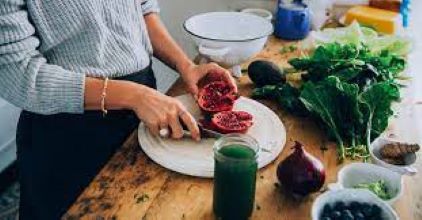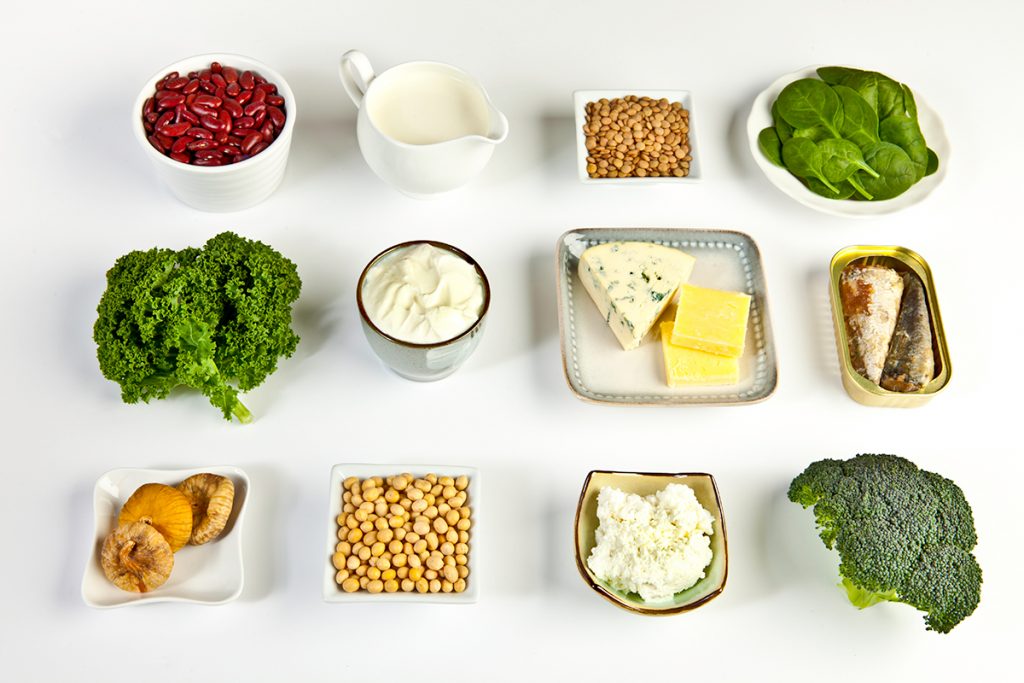Iron-Rich Foods for Anemia: Anemia is a common health condition characterized by a deficiency of red blood cells or hemoglobin in the blood. It can lead to fatigue, weakness, and a range of health issues. While anemia can have various causes, one of the most prevalent is an inadequate intake of iron, an essential mineral for the production of red blood cells. If you or someone you know is struggling with anemia, this article is your comprehensive guide to understanding the importance of iron-rich foods and how they can help manage and prevent this condition.
Understanding Anemia and Its Causes
Before we delve into the world of iron-rich foods, let’s understand what anemia is and what causes it. Anemia is a condition in which the body lacks a sufficient number of healthy red blood cells or has a reduced amount of hemoglobin. Hemoglobin is a protein in red blood cells that carries oxygen to body tissues.
There are various types of anemia, each with different causes. However, the most common type is iron-deficiency anemia, which occurs when the body lacks enough iron to produce an adequate number of red blood cells.
The causes of iron-deficiency anemia include:
- Inadequate Dietary Intake: Not consuming enough iron-rich foods in your diet is a primary cause of iron-deficiency anemia.
- Poor Iron Absorption: Some medical conditions and surgeries can affect the body’s ability to absorb iron properly.
- Blood Loss: Chronic blood loss, such as that caused by heavy menstrual periods, gastrointestinal bleeding, or surgery, can lead to anemia.
- Pregnancy: Pregnant women require more iron to support the growing fetus, and a deficiency can lead to anemia.
- Other Health Conditions: Certain medical conditions like celiac disease or Crohn’s disease can interfere with iron absorption.
Now that we have a clear understanding of the causes of anemia, let’s explore how iron-rich foods can be your key to managing and preventing iron-deficiency anemia.
How Monounsaturated Fat Boosts Brain Health and Cognitive Function
The Power of Iron-Rich Foods
Iron is an essential mineral that plays a crucial role in the body. It’s a fundamental component of hemoglobin, the protein in red blood cells responsible for carrying oxygen from the lungs to the rest of the body. Iron is also necessary for proper muscle and organ function.
Here are some of the key benefits of including iron-rich foods in your diet:
- Boosted Hemoglobin Production: Iron-rich foods provide the body with the necessary building blocks to create more hemoglobin, increasing the oxygen-carrying capacity of your blood.
- Increased Energy Levels: Anemia often leads to fatigue and weakness. Adequate iron intake can help combat these symptoms, giving you more energy.
- Improved Brain Function: Oxygen is essential for the brain to function optimally. Iron-rich foods can enhance cognitive abilities and concentration.
- Enhanced Immune System: A healthy blood supply, supported by iron, ensures your immune system can function effectively, protecting your body from illness.
- Overall Well-Being: Maintaining proper iron levels contributes to your overall well-being, reducing the risk of anemia-related health issues.
Now, let’s explore a variety of iron-rich foods to include in your diet to combat anemia effectively.
What You Cannot Eat on the DASH Diet: Making Heart-Healthy Choices
Top Iron-Rich Foods
1. Red Meat
Red meat, such as beef, is a well-known source of heme iron, which is easily absorbed by the body. A 3.5-ounce (100-gram) serving of beef provides around 2.7 mg of iron.
2. Poultry
Poultry, like chicken and turkey, is another good source of heme iron. A 3.5-ounce (100-gram) serving of chicken offers about 0.9 mg of iron.
3. Fish
Certain fish, such as salmon, tuna, and sardines, contain heme iron as well as a good dose of omega-3 fatty acids. A 3.5-ounce (100-gram) serving of salmon provides around 0.6 mg of iron.
4. Beans and Lentils
Plant-based sources of iron include beans, lentils, and chickpeas. A 3.5-ounce (100-gram) serving of cooked lentils offers approximately 3.3 mg of iron.
5. Spinach and Other Leafy Greens
Dark, leafy greens like spinach, kale, and Swiss chard are excellent non-heme iron sources. A 3.5-ounce (100-gram) serving of cooked spinach provides about 3.6 mg of iron.
6. Nuts and Seeds
Nuts and seeds, such as pumpkin seeds and cashews, are rich in iron. A 1-ounce (28-gram) serving of pumpkin seeds offers around 4.2 mg of iron.
7. Tofu
Tofu is a versatile and iron-rich plant-based protein. A 3.5-ounce (100-gram) serving of firm tofu provides approximately 2.7 mg of iron.
8. Quinoa
Quinoa is a gluten-free grain and a great source of non-heme iron. A 3.5-ounce (100-gram) serving of cooked quinoa offers about 1.5 mg of iron.
9. Fortified Cereals
Many breakfast cereals are fortified with iron, making them a convenient choice for boosting your iron intake. The iron content varies by brand and type, so check the label.
10. Dark Chocolate
Yes, you read that right. Dark chocolate, with a cocoa content of 45-69%, contains non-heme iron. A 3.5-ounce (100-gram) serving of dark chocolate provides approximately 3.3 mg of iron.
Tips for Optimizing Iron Absorption
While incorporating iron-rich foods into your diet is essential, there are ways to optimize iron absorption in your body:
- Pair with Vitamin C: Consuming iron-rich foods with sources of vitamin C, like citrus fruits or bell peppers, can enhance iron absorption.
- Avoid Coffee and Tea: The tannins in coffee and tea can inhibit iron absorption. It’s best to consume these beverages between meals.
- Cook in Cast Iron: Cooking acidic foods like tomatoes in a cast iron skillet can increase the iron content of the food.
- Balance Calcium Intake: Calcium can interfere with iron absorption, so it’s a good practice to consume dairy products or calcium supplements separately from iron-rich foods.
- Avoid Excessive Fiber: High-fiber foods, while nutritious, can inhibit iron absorption. If you rely on plant-based iron sources, balance your diet with other nutrients.
External Resources
To expand your knowledge on anemia, iron-rich foods, and overall nutrition, explore the following external resources:
- National Heart, Lung, and Blood Institute – Iron-Deficiency Anemia
- Mayo Clinic – Iron-Deficiency Anemia
Frequently Asked Questions (FAQs)
Q1: Can I get enough iron from a vegetarian or vegan diet?
Yes, you can get enough iron from a plant-based diet by consuming iron-rich plant foods like legumes, tofu, nuts, seeds, and fortified cereals. Pairing these with vitamin C-rich foods will enhance iron absorption.
Q2: How can I tell if I have anemia?
Common symptoms of anemia include fatigue, weakness, pale skin, shortness of breath, and cold hands and feet. If you suspect you have anemia, consult a healthcare professional for a diagnosis.
Q3: Are iron supplements necessary to treat anemia?
In some cases, iron supplements may be prescribed by a healthcare provider to address severe iron-deficiency anemia. However, it’s crucial to consult a healthcare professional before taking supplements, as excessive iron intake can have adverse effects.
Q4: What are the long-term health risks of untreated anemia?
Untreated anemia can lead to a range of health issues, including fatigue, cognitive impairment, heart problems, and impaired immune function. Managing anemia through dietary changes and medical treatment is essential for overall health.
Q5: Can children and pregnant women develop iron-deficiency anemia?
Yes, children and pregnant women are susceptible to iron-deficiency anemia due to increased iron requirements during growth and pregnancy. A well-balanced diet with iron-rich foods is vital for their health.
In Conclusion
Iron-rich foods play a pivotal role in preventing and managing iron-deficiency anemia, a common health condition with far-reaching effects on overall well-being. By incorporating these foods into your diet and following best practices for optimizing iron absorption, you can ensure your body has the iron it needs to produce healthy red blood cells and maintain robust health. If you suspect you have anemia or have concerns about your iron levels, consult a healthcare professional for a thorough evaluation and guidance on the best approach for your specific needs.













